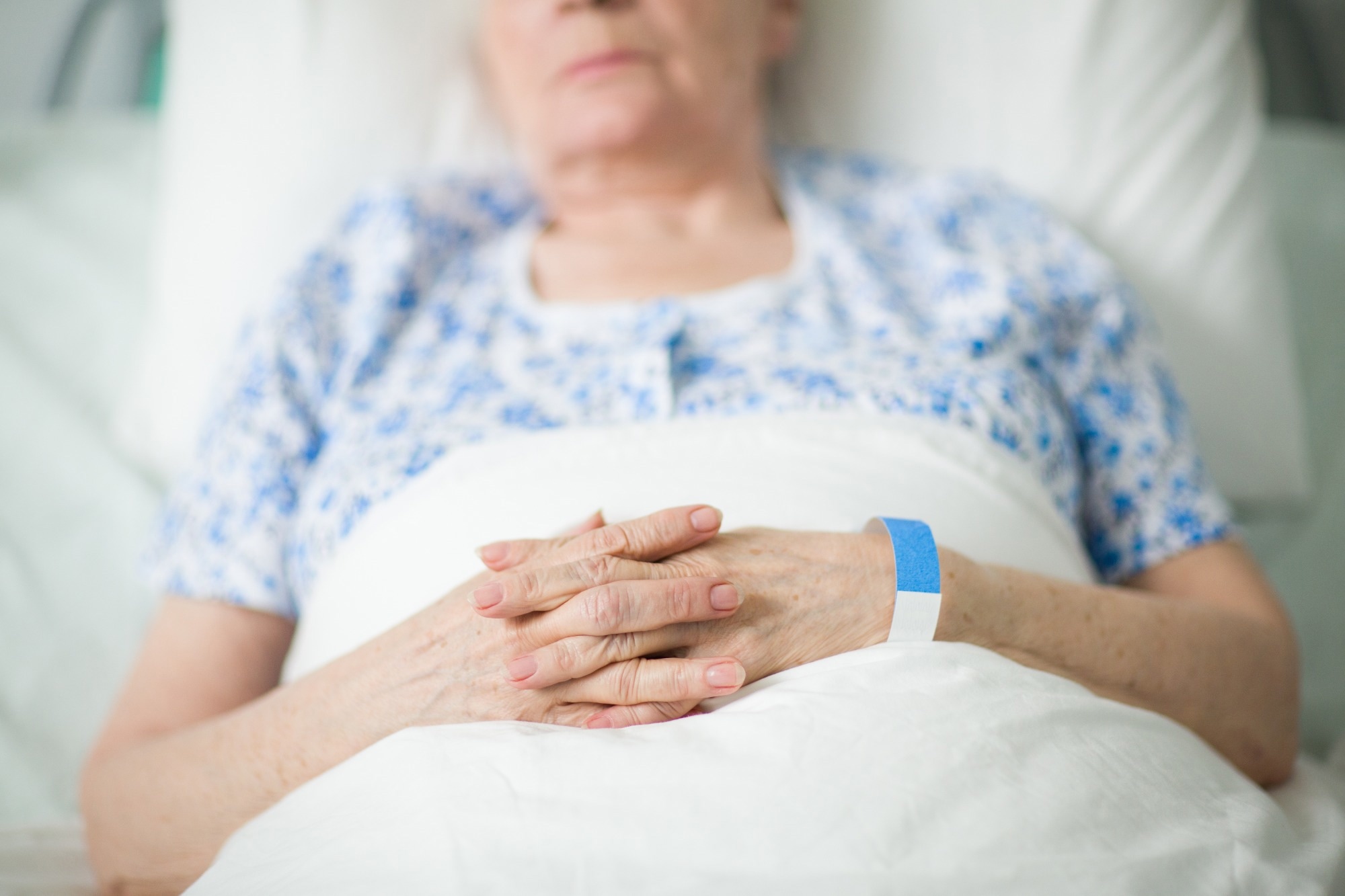Cancer is a disease that affects many people all over the globe. While cutting-edge cancer research aims to battle the disease’s global impact, specific populations are not always taken into account. Due to a lack of data on this particular age group, treating cancer in the elderly poses particular challenges for biomedical scientists and healthcare professionals.
Elderly patients are traditionally undertreated and far less likely to be included in clinical trials than younger patients, resulting in a lack of representation in cancer treatment papers.1 This lack of scientific attention to cancer treatment in the elderly opens the door for novel approaches to identify and upgrade current therapeutics.
According to the National Cancer Intelligence Network, cancer treatments such as surgery and radiotherapy are provided at varying rates to patients of different ages.2 Based on this information, a patient’s possibilities of obtaining efficient and suitable treatment decrease as they age.
Moreover, questions about whether cancer treatment is suitable for a specific elderly patient’s case, whether it is actually provided, whether the patient accepts it and whether it is properly documented still need to be answered.2 This data gap necessitates the development of personalized and forward-thinking healthcare plans for elderly cancer patients.
This article will concentrate on treating cancer in elderly patients, with a special focus on significant aspects for investigators and caregivers to take into account when developing cancer therapeutics, such as the patient’s personal circumstances.
This article will also discuss how more focused forms of treatment, such as X-ray brachytherapy technology, may offer an alternative when treating certain cancers and patients. The article will also look at the significance of taking a holistic approach to healthcare and cancer treatment for elderly cancer patients.
 Image Credit: Shutterstock.com/Pressmaster
Image Credit: Shutterstock.com/Pressmaster
Important considerations for improving treatments of cancer in the elderly
While treating cancer in elderly patients, the crucial question to ask is: is the patient’s personal situation considered or just the treatments of cancer itself? The patients personal situation must be taken into account and evaluated to successfully treat cancer in the elderly, which imposes unique social and medical challenges to care.
The type of cancer treatment and the rate of delivery, the requirement for surgery, and the influence of patient decision-making are important components of effective therapeutics for cancer in the elderly.
The advancement of cancer treatments for geriatric persons depends on the factors that influence patient decisions. Will an elderly woman with breast cancer, for instance, have a breast removed due to an inability or willingness to travel to and from the hospital for multiple follow up treatments?
Scientists assessed the effect of travel distance and time to radiotherapy on the likelihood of accepting a mastectomy for elderly patients with breast cancer in a study published in Annals of Surgical Oncology in 2017.
The study highlighted that the distance and time required to get to a radiotherapy facility were obstacles to the treatment of breast cancer in elderly patients and had an influence on the decision to receive standard cancer treatment, which includes procedures like breast conservation surgery and whole-breast irradiation.3
For instance, patients who lived over 9.2 miles from a radiation facility were over 40% more likely to undertake a mastectomy than those who lived under 9.2 miles away. Furthermore, patients who traveled for more than 19 minutes were 36% more likely to have a mastectomy than those who traveled for less than this amount of time.3
What is the potential physical and mental impact on an elderly patients quality of life when receiving a permanent stoma, as a form of treatment for colorectal or anal cancer? Are other "living with and beyond" factors being considered such as, are they able to physically alter the stoma? What effect does dementia have on an elderly patient’s capacity to handle a stoma? How is this going to impact the partner and their ongoing care?
When treating superficial skin cancers, is surgery always the best option? Throughout Europe treatments such as low energy X-ray brachytherapy are being utilized as an alternative. Curing the cancer while still minimizing the cosmetic effects surgery can sometimes leave behind.
It is crucial for oncologists and caregivers to adopt a multidisciplinary approach to develop and carry out personalized treatment of cancer in the elderly because of all of these significant considerations regarding the particular conditions in which an elderly patient exists.1
Can X-Ray brachytherapy help treat cancer in elderly patients?
The appropriateness of surgical intervention as a treatment option for cancer in the elderly is decreased by the fact that complications and survival rates in surgery frequently increase with patient age. Therefore, radiotherapy provides an alternative form of cancer treatment for elderly patients.
Using data on rectal cancer in elderly patients, for instance, scientific experts recommend that contact radiotherapy, also identified as Papillon radiotherapy or X-Ray brachytherapy, has a significant chance of being both safe and effective in treating elderly patients with early-stage rectal cancer.4
The use of differing forms of radiotherapy as a curative option for treating cancer in the elderly has the potential to offer a solution to the many distinctive social and environmental challenges that this particular patient population faces.
While the patient is under anesthesia, intra-operative radiotherapy administers huge doses of radiation aimed at tumors or tumor beds, maximizing treatment of cancerous cells while simultaneously lowering radiation to healthy cells.5
To perform breast-conserving surgery for the treatment of breast cancer in geriatric persons, a single radiotherapy “boost” to the tumor bed provides an alternative to the multiple fractions required when trying to deliver partial or full breast irradiation.
Continuing to innovate solutions for cancer in the elderly
Ariane Medical Systems’ Papillon+™ X-Ray Brachytherapy system has three primary clinical applications: fighting colorectal cancer, performing breast intra-operative radiotherapy, and treating superficial skin cancer.6 This system can modify cancer treatments for elderly patients to accommodate specific patient care requirements due to its versatility in terms of duration, dose, and brachytherapy fractions.
Additionally, the Papillon+™ X-Ray Brachytherapy system was created with consideration for the factors that influence patient decisions, significantly improving the comfort and usability of cancer treatment.6
This Papillon+™ system can treat accessable tumors as part of a multidisiplinary approach to the management of colorectal cancer. The Papillon+™ IORT capabilities can speed up treatment and cut down on frequent hospital visits for elderly patients with breast cancer. Thirdly, the system can target superficial skin cancer tumors non-invasively and successfully with little scarring or cosmetic harm to an elderly patient’s more delicate skin.6
Ariane Medical Systems’ Papillon+™ X-Ray Brachytherapy solution prioritizes patient choice and care by lowering the need for surgery to treat cancer in elderly patients.
In conclusion, it is important to critically assess current cancer therapies for elderly patients, taking into account both clinical effects and personal consequences. Additionally, when creating a treatment plan, factors relating to the patient, like where they reside, their caregiving responsibilities, and their mental health, are just as important as selecting the “gold standard” treatment option as the first option.
Global provider of services, Ariane Medical Systems is a pioneer in targeted cancer therapeutics. The biomedical experts and oncologists at Ariane Medical Systems offer patients personalized treatments with the help of innovative techniques like the Papillon+™ X-Ray Brachytherapy system, which is especially efficacious in treating cancer in the elderly.
References
- Millan, M., Merino, S., Caro, A., Feliu, F., Escuder, J., & Francesch, T. (2015). Treatment of colorectal cancer in the elderly. World Journal of Gastrointestinal Oncology, 7(10), 204. https://doi.org/10.4251/wjgo.v7.i10.204
- The Age Old Excuse: The Under Treatment of Older Cancer Patients. (2022). Macmillan Cancer Support. https://www.macmillan.org.uk/documents/getinvolved/campaigns/ageoldexcuse/ageoldexcusereport-macmillancancersupport.pdf
- Goyal, S., Chandwani, S., Haffty, B. G., & Demissie, K. (2014). Effect of Travel Distance and Time to Radiotherapy on Likelihood of Receiving Mastectomy. Annals of Surgical Oncology, 22(4), 1095–1101. https://doi.org/10.1245/s10434-014-4093-8
- Contact radiotherapy for elderly patients with early low rectal cancers. (2020). British Journal of Hospital Medicine. https://www.magonlinelibrary.com/doi/abs/10.12968/hmed.2013.74.7.391
- Intra Operative Radiotherapy | Alternative Cancer Treatment. (2022, April 20). Ariane Medical Systems. https://www.arianemedicalsystems.com/patients/?doing_wp_cron=1653938536.2735350131988525390625
- News-Medical. (2022, February 15). Improving X-Ray brachytherapy treatment using the Papillon+TM. News-Medical.net. https://www.news-medical.net/whitepaper/20220215/Using-the-Papillon2be284a2-to-Improve-X-ray-Brachytherapy-Treatment.aspx
About Ariane Medical Systems
 X-ray brachytherapy: Breast, rectal & skin cancer treatment with the Papillon +
X-ray brachytherapy: Breast, rectal & skin cancer treatment with the Papillon +
Ariane Medical Systems Ltd was incorporated in 2005 to optimize the use of low energy X-rays for the treatment of accessible tumors. Working closely with clinical partners the Papillon50 X-ray Brachytherapy system was developed to treat lower rectal tumors. The Papillon 50 is now treating patients in Denmark, France, Sweden, Switzerland and the UK.
In 2016 the Papillon+ X-Ray Brachytherapy system was developed to deliver an Intra-Operative Radiotherapy (IORT) Boost to tumor beds as well as the tumor itself.
Sponsored Content Policy: News-Medical.net publishes articles and related content that may be derived from sources where we have existing commercial relationships, provided such content adds value to the core editorial ethos of News-Medical.Net which is to educate and inform site visitors interested in medical research, science, medical devices and treatments.